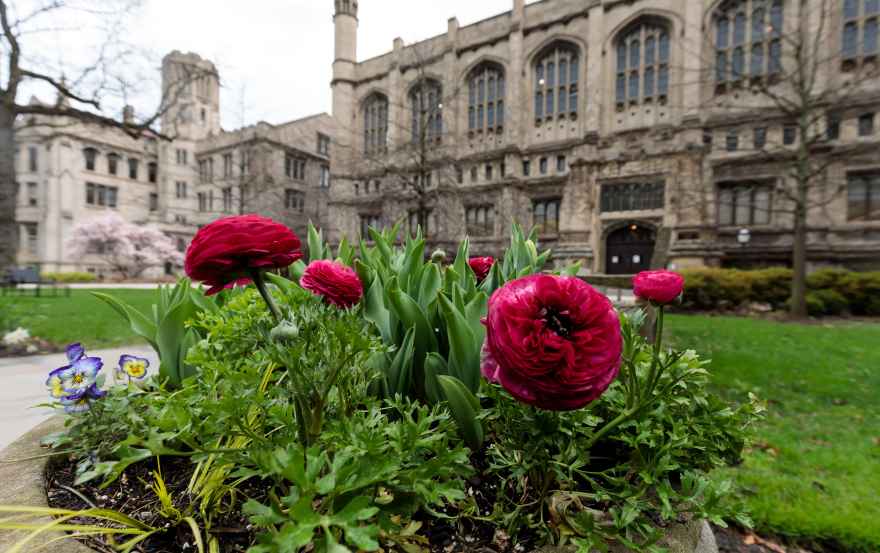Humanities Graduate Students Are Pivotal to the Success of Transcending Boundaries Symposium

Since elementary school, Rachel Chery has been a leader in diversity work. This spring, the Humanities Division doctoral candidate in Music spearheaded the virtual Transcending Boundaries Fourth Annual Research Symposium, April 8–9, with the theme of Disruption and Discovery Preparing for a New Generation of Scholars.
To her surprise, Chery recently received the Departmental Diversity Award for the Humanities Division for her leadership in the realm of furthering diversity on the UChicago campus.
“First and foremost, she was foundational to the organization and success of the Transcending Boundaries Symposium, which was an incredible space for so many beautiful presentations and the building of community,” said Frania Mendoza Lua, doctoral candidate at the Crown Family Center and Chair of UChicagoGRAD Diversity Advisory Board. “I hope everyone who attended realizes how radical and powerful this conference really was at a school like UChicago. Outside of the Diversity Advisory Board, Rachel continues to decolonize music theory syllabi. She starts the classes that she teaches with Nina Simone and that is so important! Her dissertation is also looking to her identity in a field where it is still not common to do so.”
While Chery describes the award as the capstone of what she’s been doing all her life, she was quick to praise the UChicago students who presented intriguing topics during the Transcending Boundaries Symposium.
Three Humanities Division graduate students explored race and the occult, indigenous Mexican language in hip-hop, and Hegel and romantic quest of self in art in their presentations. Jonah Francese, Bre’Anna Girdy, and Manjing Wuang gave their virtual sessions on topics relevant to their UChicago studies as well as to their personal interests.
“My grandmother spoke the Hñähñu language, and I looked at several hip-hop groups that use this language in their lyrics,” said Francese, a PhD candidate in ethno-musicology, who presented Hñähñu Language Revitalization through Indigenous Mexican Hip Hop: Building Towards an Indigenous Hip Hop Futurism. “Using this indigenous language in hip-hop lyrics is an opportunity to teach the language and increase the percentage and number of speakers.”
“Literary genre is built on tradition,” said Girdy, who graduated June 3 from the Master of the Arts Program in the Humanities (MAPH), who presented Bloody Fungibilities: Race and the Occult in Pauline E. Hopkins’s Of One Blood: Or, The Hidden Self. “Many Black authors, such as Pauline Hopkins, Toni Morrison, and Octavia Butler, discuss the Black experience in the context of spiritualism and witchcraft. This concern spans generations and examines the insidious nature of racism. Art reflects on the material conditions of our social world.”
“Art and music are ways to reconcile and express your inner world to the outside,” said Wuang, a MAPH candidate, who presented A Hegelian Attempt on the Romantic Quest of the Self as a Form of Art in E. T. A. Hoffmann. “But there’s always a difficult balance to maintain between expression and privacy. I strongly believe philosophy and literature are intertwined.”
During two days at this year’s Transcending Boundaries Symposium, 15 virtual sessions were presented. Chery thought students ran with their topics and was delighted that presenters’ friends and family were in the audience as well as their colleagues. There was “no Zoom fatigue” despite the long hours, she said.